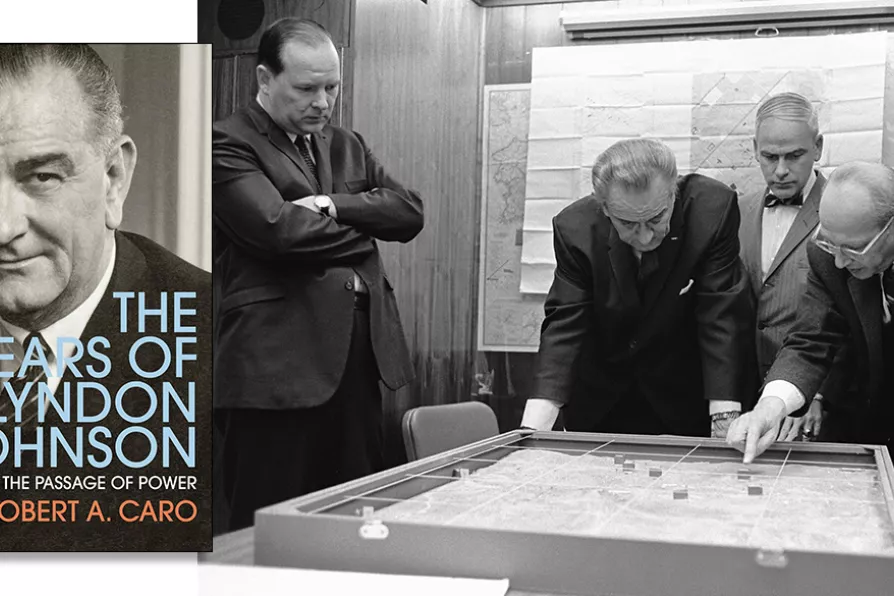JOHN GREEN, MARIA DUARTE and ANGUS REID review Fukushima: A Nuclear Nightmare, Man on the Run, If I Had Legs I’d Kick You, and Cold Storage

 SITUATION ROOM: Walt Rostow shows President Lyndon B. Johnson a model of the Khe Sanh area 02/15/1968. Johnson ordered the US military to hold Khe Sanh at all costs, and with the eventual abandonment of the base "Khe Sanh became etched in the minds of many Americans as a symbol of the pointless sacrifice and muddled tactics that permeated a doomed U.S. war effort in Vietnam”.
[Public Domain]
SITUATION ROOM: Walt Rostow shows President Lyndon B. Johnson a model of the Khe Sanh area 02/15/1968. Johnson ordered the US military to hold Khe Sanh at all costs, and with the eventual abandonment of the base "Khe Sanh became etched in the minds of many Americans as a symbol of the pointless sacrifice and muddled tactics that permeated a doomed U.S. war effort in Vietnam”.
[Public Domain]
The Years of Lyndon Johnson, vol 4: The passage of Power
Robert A Caro, The Bodley Head, £30
WHO wants to read a biography of Lyndon Johnson?
His presidency of the US from 1963-69 was hardly a memorable one. But this is not so much a book about a bland US president but a meticulous dissection of political and economic structures in the US. It is also a riveting read by one of the modern masters of historical writing.

STEPHEN ARNELL casts a critical eye over the sudden rash of challenges to the two-party system on both sides of the Atlantic, noting that today’s performative populist politics sadly lacks Roosevelt’s progressive ‘Bull Moose’ vision of the early 20th century

NICK MATTHEWS previews a landmark book launch taking place in Leicester next weekend











